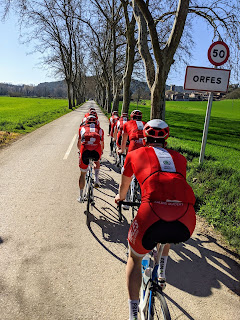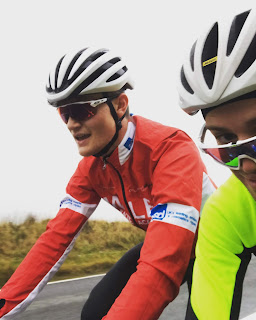Carrying on from my last blog,
again covering a very topical subject in the current world we are living in. I
thought I would take some time to write about what mental resilience means to
athletes and to suggest ways in which you can cope with events to make yourself
a more resilient individual.
What is mental resilience?
Mental resilience is the ability
to regulate your mental processes and behaviours, in the face of
adversity. Someone who has good mental
resilience can rationally deal with difficult, stressful, or surprising situations.
How do we build this into
ourselves?
It’s all well and good looking at
a dictionary definition and an idealism. However, in practice, how do you
improve this mindset? One of the best ways I have found to deal with difficult
situations is to surround yourself with positive, like-minded people, who won’t
hesitate to be honest with you and to help you to think rationally. Another way,
is recognising when you don’t have control over an event; learning how to manage your feelings/focus to remain
in a good mindset. This brings me back to what I touched upon in my last blog
in goal setting and ticking off small goals along the way.
The main area I see in athletes (and
I have been guilty of this myself) is not recognising your own accomplishments,
however small they may be. Recognising what you have achieved is such a good
way to keep a positive frame of mind. As an athlete, on the whole, you are
always looking ahead at what’s to come so frequently forget to enjoy or
acknowledge your own accomplishments. This is such an easy trap to fall into.
Most commonly, we are our own toughest critics and therefore neglect personal
praise.
All these points I have touched
upon so far are fairly different to the more ‘old school’ perception to mental
resilience, especially in endurance sport. I think it is viewed as a very macho
thing, to ‘get it done’ and not to question the process. I still think a certain
element is very much true as life isn’t always easy and you do need to push
yourself. On the other hand, using those sweeping statements doesn’t help you actually
learn ways to manage your mind and figure out process’s that work for you.
I hope this has given you some
ideas to take away and think about processes that you can implement in your own
life, to become more mentally resilient.

















